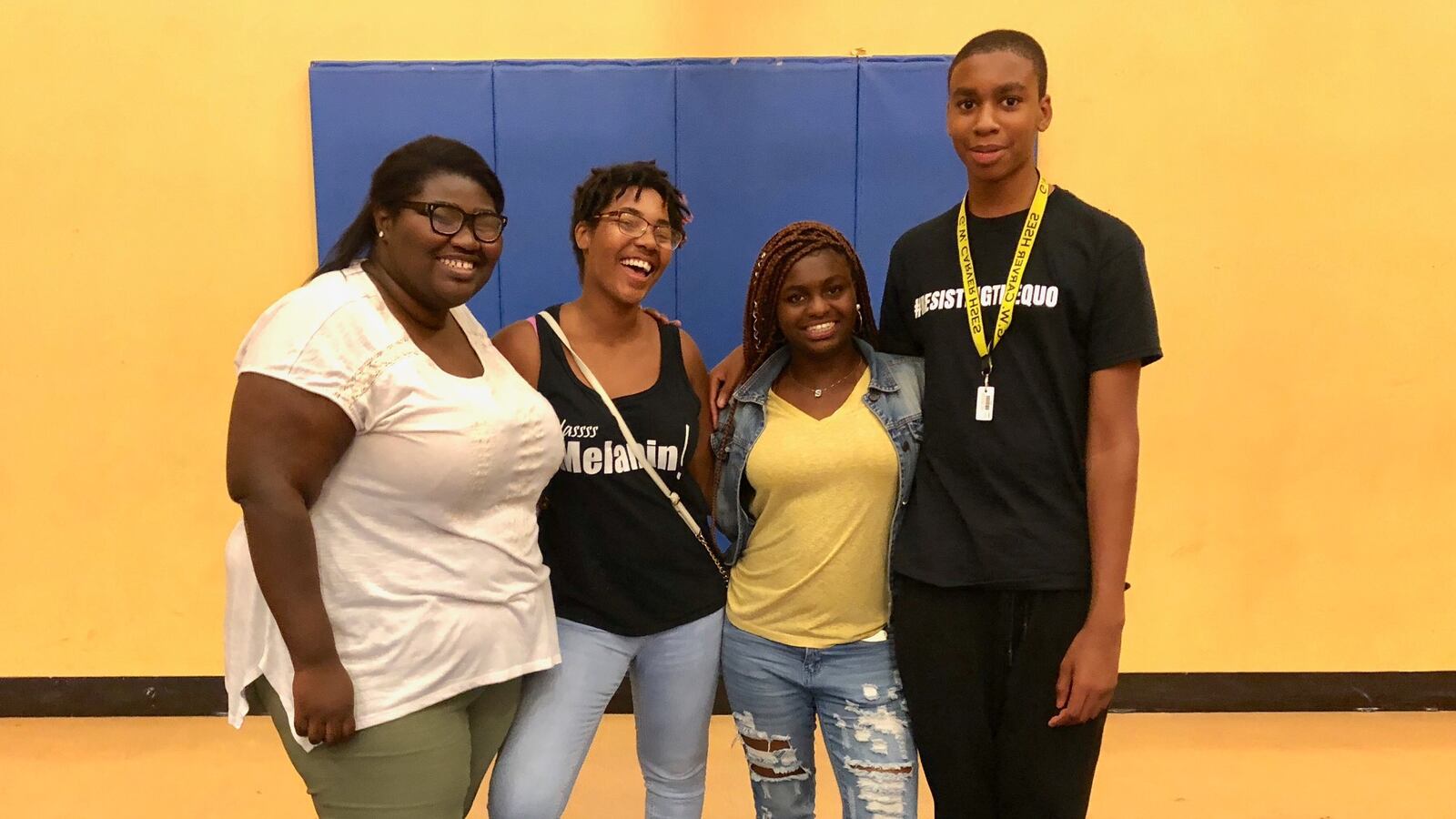This article was originally published in The Notebook. In August 2020, The Notebook became Chalkbeat Philadelphia.
In the winter of 1963 in Mississippi, Charles E. Cobb Jr., a member of the Student Nonviolent Coordinating Committee (SNCC), proposed a school program that would show kids “the link between a rotting shack and a rotting America.” The school was to educate black children about themselves, the world they lived in, and their place in it.
The following summer, in 1964, Freedom Schools were born as an extension of Freedom Summer, a campaign to register black voters in the South.
The six- to eight-week summer program gathered college students from all over the country to teach black children about Black Liberation.
Cobb, now the author of several books on the civil rights movement, said he and the other founders thought it wouldn’t go beyond the Freedom Summer of 1964.
“It was a way to take advantage of the intellectual resources of all those students who were coming down for that summer,” he said.
The idea spread, however, to cities throughout the country, inspiring educators to supplement students’ public education with cultural pride in the following decades.
In Philadelphia, the program has existed since 1999, and today, educators are carrying on the legacy at four sites: Sankofa Freedom Academy Charter School, Mastery Shoemaker Charter School, the Ujima Peace Center, and the Lenfest Center.
About 300 students, from elementary to college age, participated in the program this summer. It ran from July 2 to Aug. 17, and the Lenfest Center started one week later. The program follows the original Freedom School mold, putting young people in leadership roles.
College students, called servant leader interns, and high school students, called junior servant leaders, serve as mentors and teach elementary students reading, math, history, and problem-solving with a curriculum steeped in African culture.
The morning ritual called Harambee, for example, which means “pulling together” in Swahili, exemplifies the program’s commitment to uplifting the cultural identity of its students. It is a cheerful gathering that includes chanting and paying homage to “the ancestors” and lost loved ones.
For their own education, junior servant leaders from all four sites meet with scholars, local artists, and leaders once a week to complete their own two-part, three-hour course in critical thinking called Mbongi.
This year the course included workshops covering topics such as organizing, self-pride, and poetry. They also read and discussed Zora Neale Hurston’s book Barracoon with Greg Carr, a Howard University professor of African American studies.
Isaiah Thomas, the executive director of the program, said, “the cultural and academic component are both significant” but “the cultural component is irreplaceable.”
Myciah Brown, 18, graduated from Cristo Rey Philadelphia High School. She was a junior servant leader at the Lenfest Center in North Philadelphia.
Now a freshman at Catholic University, she said the program was preparation for attending the predominantly white institution.
“This experience helped me to hone in on who I am and accept who I am before I go out into the real world,” she said.
Qamar Coleman, a sophomore at George Washington Carver High School of Engineering & Science, said the program gave him a thirst for knowledge and the Mbangi inspired him to be more informed.
“I just want to go to school and learn more and obtain more knowledge,” said the 15-year-old. “Because you can never have enough of it.”
The junior servant leaders and servant leader interns apply and are paid through Philadelphia Youth Network’s summer work program. They’re scheduled to work 120 hours, but the high school participants said they tend to volunteer more of their time.
“We stay here through the whole day, even though we don’t have to,” said Nyjah Smith, 15, a sophomore at Freire Charter High School.
At the end of the program, the junior servant leaders spend the last week preparing their portfolio to present to families and their academic advisers. They also perform a Harambee session for them, as well.
At Lenfest, junior servant leaders said the experience created a bond.
“Now we’re all connected, whether we like it or not, through a bond of Freedom Schools, and we’re a family,” said Coleman.
Thomas, the executive director, said they’re currently raising funds to expand the program to more sites in the future.
“I came to Freedom Schools because I was looking for a summer job, but I stayed because of the experience,” said Coleman. “It was wonderful. It was crazy how you have people that are in high school teaching children and we can relate more to the children rather than an adult.”

